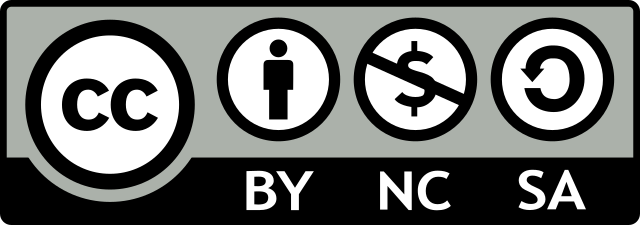Application of Total Quality Management (TQM) in the Administration of the El-Barqī Arabic Language Study Institution
Abstract
The El-Barqī Arabic Language Study Institution implements the concept of Total Quality Management (TQM) in its programme, following Arthur R. Tenner's theory. TQM is guided by three core concepts. The ideas encompassed are as follows: firstly, a strong emphasis on customer focus, where El-Barqī offers extensive resources to educators in order to facilitate and enhance the effectiveness of the learning process. One of these amenities involves the provision of native Arabic speakers to facilitate direct Arabic language communication practice with native speakers. El-Barqī constantly engages with the parents of pupils through Islamic studies. The tangible effect of prioritising customer satisfaction is apparent in the growing annual intake of students and the extensive partnerships established with both public and private institutions by El-Barqī. Additionally, El-Barqī has implemented process improvement measures, including the enhancement of its programmes. This encompasses the implementation of language study programmes, both non-residential and residential, as well as the establishment of the Middle East Study Guidance Programme. Additionally, El-Barqī ensures full engagement, resulting in the production of highly skilled Arabic language graduates who have achieved numerous notable accomplishments. The outstanding collaboration inside El-Barqī has undeniably led to the successful implementation of its programmes. Hence, the adoption of Total Quality Management (TQM) has a substantial influence on enhancing the standard of education.
References
Ahmad, Usman, Mansyur Ramly, and Ahmad Hakim. “Implementation of Total Quality Management To Support Improving The Quality Of Education at Aliyah State Madrasah In Makassar City.” International Journal Of Social Sciences 91 (1) (oktober 2021): 1–22.
Andy, Wahyu H and Kardoyo. “Human Resources Development Analysis Based on Total Quality Management at Daarul Qur’an Elementary School Semarang.” In Proceedings of the International Conference on Science and Education and Technology (ISET 2019). Kota Semarang, Indonesia: Atlantis Press, 2020. https://doi.org/10.2991/assehr.k.200620.065.
Azizah, Lailatul, and Silvia Witri. “Peningkatan Mutu Pendidikan melalui Penerapan Total Quality Management dalam Program Akreditasi Sekolah.” Dawuh Guru: Jurnal Pendidikan MI/SD 1, no. 1 (February 25, 2021): 69–78. https://doi.org/10.35878/guru.v1i1.263.
Efendi, Nur. “Manajemen Mutu Terpadu Dalam Perspektif Al-Qur’an dan Al-Hadits.” AL-IFKAR: Jurnal Pengembangan Ilmu Keislaman 18(02) (2022): 103–27.
Fandy, Tjiptono, and Anastasia Diana. Total Quality Manajemen. Edisi Revisi. Yogyakarta.: Andy: " ., 2003.
Fathoni, Abdurrahmat. Metodologi Penelitian & Teknik Penyusunan Skripsi. (Jakarta: , PT Rineka Cipta, 2011.
Hasan, Sudirman. “Implementasi Total Quality Management dalam Pengelolaan Wakaf di Dompet Dhuafa.” AHKAM : Jurnal Ilmu Syariah 12, no. 1 (February 1, 2012). https://doi.org/10.15408/ajis.v12i1.983.
Ishak, Amal Hayati, and Muhamad Rahimi Osman. “A Systematic Literature Review on Islamic Values Applied in Quality Management Context.” Journal of Business Ethics 138, no. 1 (September 2016): 103–12. https://doi.org/10.1007/s10551-015-2619-z.
Iskarim, Mochamad. “The Quality Management of Arabic Language Education Based on The Quality Management System (SMM) ISO 9001:2015.” ALSINATUNA 3, no. 2 (August 20, 2018): 225. https://doi.org/10.28918/alsinatuna.v3i2.1238.
Ismail, Feiby. “Implementasi Total Quality Management (TQM) Di Lembaga Pendidikan.” Jurnal Ilmiah Iqra 10 (2) (2016). http://dx.doi.org/10.30984/jii.v10i2.591.
Kurniawan, Muchamad Arif, Willa Putri, and Krisna Ardawinata. “Kebijakan Kepala Sekolah dalam Meningkatkan Mutu Pendidikan MAN 1 Yogyakarta.” Journal for Islamic Studies 6, no. 3 (2023).
Maghfiroh, Lailatul. “Strategi Peningkatan Mutu Pendidikan Madrasah melalui Total Quality Management (TQM) di Madrasah Ibtidaiyah Wahid Hasyim Yogyakarta.” TA’LIM : Jurnal Studi Pendidikan Islam 1, no. 1 (January 31, 2018): 19–39. https://doi.org/10.52166/talim.v1i1.623.
Masruroh, Durrorul. “Service Quality Control Dalam Pengembangan Pembelajaran Bahasa Arab di Excellent Languange.” Aafiyah : Jurnal Multidisiplin Ilmu 1 (2) (2023): 12–22.
Pettalongi, Sagaf S. “Konsep Total Quality Management dalam Pengembangan Kurikulum Pendidikan Islam.” HUNAFA: Jurnal Studia Islamika 7, no. 1 (June 15, 2010): 37. https://doi.org/10.24239/jsi.v7i1.107.37-46.
R Tenner, Arthur, and Irving J. DeToro. Total Quality Management, Three Steps to Continuous Improvement. Massachusetts: Addison- Wesley Publishing Company, 1992.
Rahmadani, Luthfi Setya, and Muhammad Ja’far Soddiq. “Implementasi Total Quality Management untuk meningkatkan mutu pendidikan di Madrasah Tsanawiyah Ma’arif Darussholihin Sumberadi Mlati Sleman.” Indonesian Journal of Educational Management and Leadership 1, no. 1 (January 22, 2023): 57–70. https://doi.org/10.51214/ijemal.v1i1.500.
Rahmah, Ulfatur. “Implementasi Total Quality Management (TQM) di SD Al-Hikmah Surabaya.” Manageria: Jurnal Manajemen Pendidikan Islam 3(1), (2018): 111–31.
Rustandi, Feri, Nova Ismawati, and Gozali. “Peluang dan Tantangan Pengelolaan Sekolah Islam Terpadu: Perspektif Total Quality Management.” JEMSI (Jurnal Ekonomi, Manajemen, dan Akuntansi) 9, no. 5 (October 1, 2023): 2219–27. https://doi.org/10.35870/jemsi.v9i5.1587.
Sanjaya, Wina. Penelitian Pendidikan: Jenis, Metode, Dan Prosedur. Jakarta: Prenada Media Group, 2015.
Sulijaya, Feliana, and Nurainun Bangun. “Pengaruh Total Quality Management, Motivasi Dan Komitmen Organisasi Terhadap Kinerja Manajerial Pada PT Sekar Bumi, TBK.” Jurnal Akuntansi 19, no. 3 (March 3, 2017): 433. https://doi.org/10.24912/ja.v19i3.90.
Wiyani, Novan Ardy, Muhammad Najib, and Sholichin Sholichin. “Penerapan TQM dalam Pendidikan Akhlak.” Jurnal Pendidikan Islam 28, no. 2 (February 22, 2016): 221. https://doi.org/10.15575/jpi.v28i2.545.
Copyright (c) 2025 Isti Jayang Fitrah, Dian Arista, Nur Kholid, Muhammad Rikza Wahyu Hilal Ramdhani

This work is licensed under a Creative Commons Attribution-NonCommercial-ShareAlike 4.0 International License.

